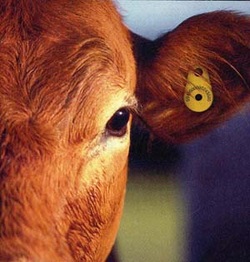Predation, competition, and disease

livestock
Before the evolution of hominids, life forms competed with each other and drove one another extinct. Recently in geologic time, Humans have been transporting animals and plants from one part of the world to another for thousands of years, sometimes deliberately (e.g., livestock released by sailors onto islands as a source of food) and sometimes accidentally (e.g., rats escaping from boats). In most cases, such introductions are unsuccessful, but when they do become established as an invasive alien species, the consequences can be catastrophic. Invasive alien species can affect native species directly by eating them, competing with them, and introducing pathogens or parasites that sicken or kill them or, indirectly, by destroying or degrading their habitat. Human populations may themselves act as invasive predators. According to the "overkill hypothesis", the swift extinction of the megafauna in areas such as New Zealand, Australia, Madagascar and Hawaii resulted from the sudden introduction of human beings to environments full of animals that had never seen them before, and were therefore completely unadapted to their predation techniques.
 RSS Feed
RSS Feed